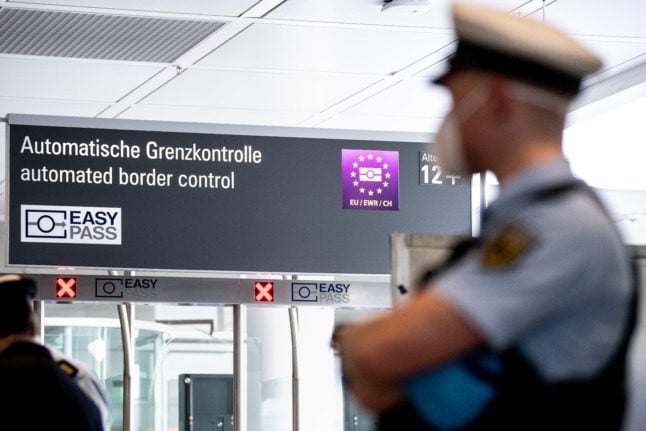If you’re stuck without proof of residency just yet and want to go abroad, don’t panic. This seems to be quite a common scenario, and one that the Bundespolizei should be used to dealing with after Brexit.
Back in 2020, just days before Britain left the European Economic Area (EEA) and free movement of people came to an end, the German police force put out a statement advising Brits returning to Germany after the New Year to apply for a Fiktionsbescheinigung from their local Foreigner’s Office (Ausländerbehörde).
This is a kind of provisional certificate recognising that you have registered your residence in Germany with the Foreigner’s Office and stating that they are in the process of issuing your card. It can be used as proof of residency in order to leave and re-enter Germany without getting a passport stamp.
At the time, however, the border services also acknowledged that Covid could make it difficult for Brits to always get a Fiktionsbescheinigung in time for their journey. Plus the certificate does cost a fee.
READ ALSO: How Brits in the UK can get back to Germany in the New Year
“The border authorities have therefore been instructed to initially recognise other certificates as proof of the right of residence from January 1st, 2021. These can be, for example, registration certificates, tenancy agreements or even employment contracts,” they said.
So, where do things stand now? Well, once again, the Fiktionsbescheinigung is probably the best port of call. The added bonus of taking this route is that it presents an opportunity to gently remind the Ausländerbehörde that they should aim to issue your residence card GB as soon as possible. (Just as a heads up: they are supposed to have issued these by the end of the year.)
Other evidence you can use
If the provisional certificate can’t be issued in time, ask for a simple letter from the Ausländerbehörde confirming that you have informed them of your residence in Germany, or simply bring your Meldebescheinigung – official proof that you are registered at a German address – with you on your travels.
As everyone has to register their address by law in Germany, you should have this somewhere in your home, but if it’s been mislaid, don’t fret – your local Bürgeramt will be happy to reissue one for you (though there may be a small fee).
If none of these things are available, the Bundespolizei (federal police) confirmed to us on Thursday that other evidence such as a health insurance card, recent pensions statement or employment contract, or electricity bill can still be used.
This should help you avoid being treated as a British tourist when you enter the country again, which could result in getting a stamp in your passport, which indicates that you are only supposed to be in the country for up to 90 days.
What happens if they stamp my passport?
If your passport does get stamped in error when you re-enter the country, this doesn’t affect your rights in Germany in the long term.
“UK nationals who were legally resident in Germany prior to the end of the transition period on December 31st 2020, and are therefore subject to the Withdrawal Agreement should not have their passports stamped when re-entering Germany,” the British Embassy told The Local.
READ ALSO: Passport stamps: What British residents in the EU need to know when crossing borders
“However, a stamp in your passport does not alter your rights under the Withdrawal Agreement, such as your right to reside here and to receive a new residence document.”
Furthermore, since Brits don’t need a visa to enter an EU country for up to 90 days, you don’t need to worry about being allowed across the border if you can’t prove your residency right. This sort of situation is “not a problem,” a spokesperson for the police told us.
It does get trickier if you’re returning from somewhere outside the EU where Covid-related travel restrictions are in place, however. If that’s the case, it’s imperative you are able to prove your residency with a Fiktionsbescheinigung or Meldebescheinigung in order to be sure that you’ll be allowed back in.



 Please whitelist us to continue reading.
Please whitelist us to continue reading.
What happens if one is outside the EU and *loses* the Fiktionsbescheinigung or Meldebescheinigung? Are consular services available to German non-citizen residents?